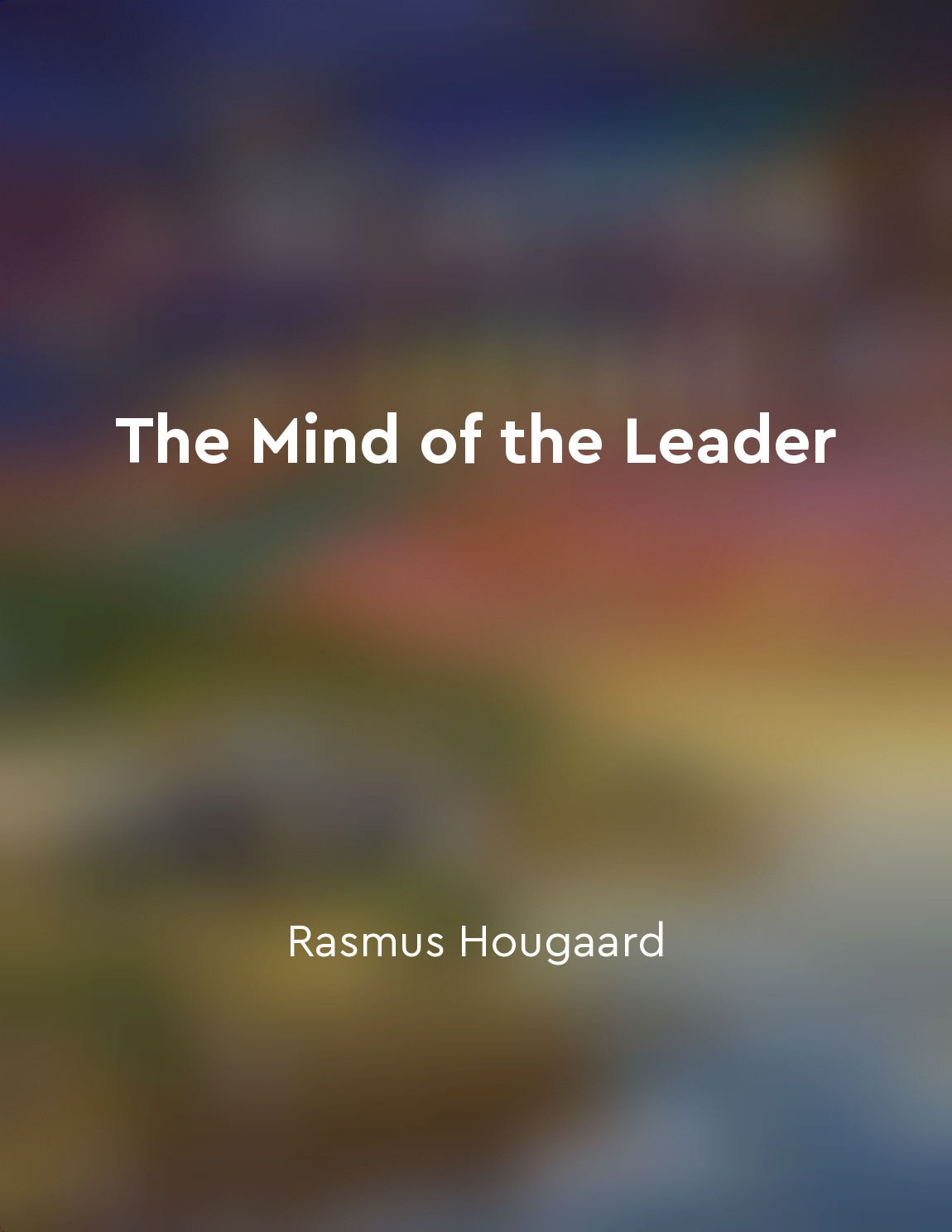Audio available in app
Emotional intelligence is crucial for effective leadership from "summary" of The Culture Code by Daniel Coyle
Effective leadership hinges on the ability to connect with others on an emotional level. This connection is not simply a nice add-on to leadership; it is the very foundation upon which effective leadership is built. In the high-stakes world of leadership, where decisions must be made quickly and under pressure, emotional intelligence is what separates the great leaders from the merely good ones. Leaders who possess high emotional intelligence are able to read the emotions of those around them, accurately interpret those emotions, and respond in a way that is both empathetic and effective. This ability to understand and empathize with others is key to building trust and fostering a sense of belonging within a team. When team members feel understood and valued, they are more likely to be engaged, motivated, and committed to the team's goals. Furthermore, emotional intelligence allows leaders to navigate complex interpersonal dynamics with ease. By understanding the emotions and motivations of those around them, leaders can anticipate conflicts before they arise, mediate disputes effectively, and build strong, cohesive teams. In this way, emotional intelligence acts as a kind of social lubricant, smoothing over the rough edges of human interaction and creating a more harmonious and productive work environment. Finally, emotional intelligence is crucial for inspiring and motivating others. Leaders who are able to connect emotionally with their team members are better equipped to inspire them to greater heights of achievement. By understanding what drives and motivates each individual team member, leaders can tailor their approach to bring out the best in each person. This ability to inspire and motivate others is what sets truly exceptional leaders apart from the rest.- Emotional intelligence is not just a nice-to-have quality in a leader; it is absolutely crucial for effective leadership. Leaders who possess high emotional intelligence are better able to connect with others, navigate complex interpersonal dynamics, and inspire and motivate their team members. By honing their emotional intelligence skills, leaders can unlock their full potential and achieve extraordinary results.
Similar Posts
Using storytelling can help make your message more memorable
When it comes to influencing others effectively, one powerful tool to keep in mind is the use of storytelling. By incorporating...

Respect for different perspectives leads to a more inclusive workplace
In a diverse workplace, respecting different perspectives is essential for creating an inclusive environment where everyone fee...
Trust is a crucial element of resonant leadership
Trust is the bedrock of any relationship, whether personal or professional. Within the context of leadership, trust plays a cru...

Balancing performance and wellbeing in leadership decisions
Balancing performance and wellbeing in leadership decisions is a critical concept that requires leaders to carefully consider t...
Emotionally intelligent individuals are better at adapting to change in the workplace
The ability to adapt to change is a crucial skill in today's fast-paced workplace. Emotionally intelligent individuals have an ...
Trust is a crucial element of resonant leadership
Trust is the bedrock of any relationship, whether personal or professional. Within the context of leadership, trust plays a cru...
Emotional intelligence can be learned and developed over time
The idea that emotional intelligence can be learned and developed over time is a key concept in the book "Inteligencia emociona...
As the field of leadership studies continues to evolve, new theories and approaches will emerge
The field of leadership studies is constantly changing and developing. This evolution is driven by a variety of factors, includ...
Cultivating emotional intelligence can lead to success and fulfillment in the workplace
Emotional intelligence plays a crucial role in determining success and fulfillment in the workplace. Individuals who possess hi...


